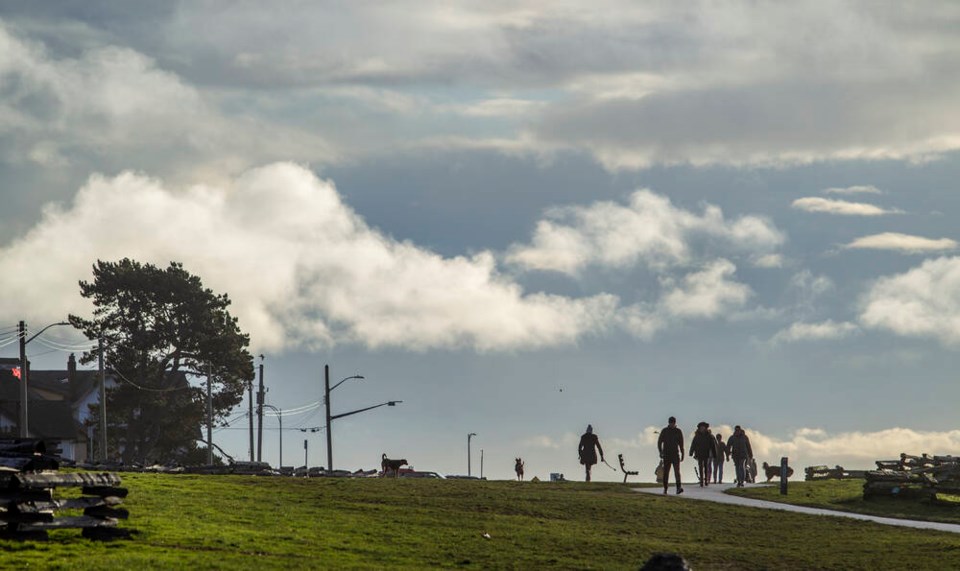It looks like Greater Victoria, indeed much of Vancouver Island, will have a white Christmas.
“I think we can probably, definitely say by midday Christmas Day we should be seeing snow for much of the Capital Regional District,” Environment sa国际传媒 meteorologist Brian Proctor said Thursday.
“My definition of a white Christmas is two centimetres on the ground. And it will be getting colder.”
have been issued for Greater Victoria, the Malahat, east and inland Vancouver Island, and the southern Gulf Islands.
Snow is in the forecast for tonight through Sunday for all those areas. Colder temperatures are expected tonight and will continue through next week. A special blast of Arctic air will make its way to the coast later on Christmas Day.
For the past three weeks, a northwest flow from the Gulf of Alaska has swept across southern sa国际传媒, bringing unseasonable conditions, such as 11 hours of freezing rain in Abbotsford, said Proctor. The flow is starting to drift west, allowing colder air over the interior of the province to seep out and arrive here on Christmas Day.
But it’s a complicated weather pattern and will be variable, said Proctor. Initially, some areas will experience rain which will become snow by Saturday.
“We’re expecting some snowfall down the east side of Vancouver Island overnight [Thursday night] and [this] morning. But the main precipitation for the [capital region] will arrive beginning Christmas Eve evening and continuing into Christmas Day,” the meteorologist said.
As the airmass around the south coast cools, more widespread snow is possible.
Once the cold Arctic air settles around the south coast, temperatures are expected to be well below seasonal through the end of December. The overnight temperature will drop to 0 °C tonight, -4 °C on Christmas Day and -8 °C on Boxing Day, said Proctor. Temperatures will then oscillate between -5 °C to -8 °C overnight until the New Year.
Environment sa国际传媒 has warned of an increased risk of frostbite and hypothermia. Protect yourself and wear appropriate clothing outdoors, the agency said.
People can report severe weather by sending an email to [email protected] or tweeting #BCStorm.



